Minoxidil For Hair: Benefits And How It Works
Learn how this medication works on your tresses and stimulates growth.
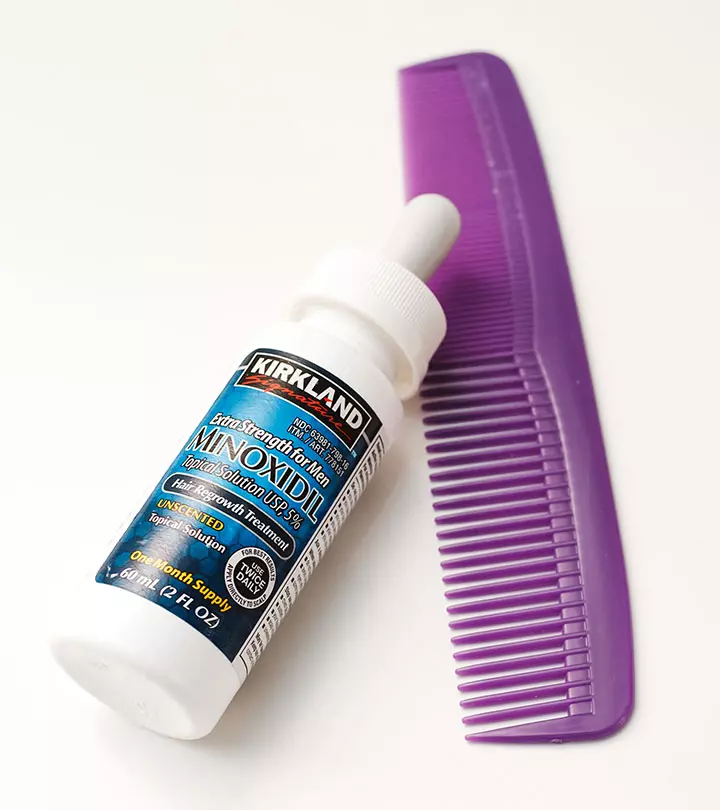
Image: Shutterstock
Anyone who has faced hair loss or is struggling with hair growth has probably heard of Minoxidil. If you are curious to know if Minoxidil works for hair, you have come to the right place. It is one of the most recommended treatments to stimulate hair growth. Explore the working and benefits of Minoxidil and why doctors recommend it. Continue reading.
In This Article
What Is Minoxidil?
Minoxidil, which commonly goes by the trade name Rogaine, was developed by Upjohn Company in the late 1950s to treat ulcers. But today, the medication is used as an oral vasodilator to treat blood pressure (1). This over-the-counter medication is also used to treat male pattern baldness. However, it is believed to work best on those less than 40 years of age.
Minoxidil is available as a tablet, ointment, or foam. It can be taken orally or applied topically to the affected area. Let us look at the research concerning minoxidil.
Key Takeaways
- Minoxidil or Rogaine is an over-the-counter medication used to treat blood pressure and male pattern baldness.
- Minoxidil helps expand the blood vessels, increasing blood flow to hair follicles.
- Anecdotal evidence suggests that minoxidil may cause itching, rashes, acne in some individuals.
- Once you stop using Minoxidil, your hair may fall out.
What Does Research Say About Minoxidil And Hair Regrowth?
Minoxidil was found to be quite effective when used to reverse hair loss from medication. In the study, using minoxidil regularly had decreased the duration of hair loss due to chemotherapy (2).
In another study, the participants (men) were categorized into three groups. While the first two groups were given 5% minoxidil and 2% minoxidil, the third was given a placebo. The study found that men who used 5% topical minoxidil showed more effective hair growth than those in the other two groups (3).
Topical minoxidil used along with finasteride was found to be more effective in treating hair loss than using either of the medication alone (4). However, finasteride is not recommended for pregnant women due to its potential teratogenic effects on the fetus (physical malformations) (5).
In another study, using 5% topical minoxidil and low-level light therapy (a red light device used on the scalp) showed an increased improvement from androgenic alopecia (6).
Much of the research does state that minoxidil may help with hair regrowth. But how does it work?
How Does Minoxidil Work For Hair?
Minoxidil is a vasodilator and is used to treat blood pressure. It helps expand the blood vessels, leading to an increase in blood flow in the body. It is believed that this property of minoxidil may help increase the blood flow to the hair follicles, encouraging hair growth (7). However, more information on the mechanism of minoxidil in hair growth is warranted.
 Fun Fact
Fun FactHow long does the medication take to show results? Keep reading.
How Long Does Minoxidil Take To Work On Hair?
Those who used 5% topical minoxidil showed fasters results than those who used 3% topical minoxidil (3). Based on the type of minoxidil used, one may observe results in 4 to 6 months.
Note: Certain individuals may not see changes right away. Some may even experience hair loss after using minoxidil. In such cases, one must consult their doctor. There could be an underlying condition causing hair loss.
 Quick Tip
Quick TipMinoxidil may also cause certain adverse effects you must be aware of.
Side Effects Of Minoxidil On Hair
Anecdotal evidence suggests that topical minoxidil may cause the following side effects:
- Itching
- Skin rashes
- Acne
- Burning sensation on the scalp
- Facial hair growth
- Swelling of face
Oral minoxidil may harm the fetus in pregnant women. Research is limited in this regard. Stay safe and avoid use.
A study was conducted on 1404 patients suffering from any type of alopecia to understand the effect of low-dose oral minoxidil (LDOM) as a treatment for hair loss. Of them, about 98% of the participants successfully used minoxidil to manage hair loss while 1.7% discontinued the treatment as a result of systemic adverse effects, like headache, hypertrichosis, and lightheadedness.
Experts frequently recommend minoxidil, and for a good reason. Various studies have demonstrated that it stimulates hair growth. It is often effective, even if it takes time to show results. However, be aware of the negative consequences. Scalp roughness, dryness, itching, and irritation are common minor adverse effects. If these side effects are serious or do not go away on their own, you should contact your healthcare professional. Even if you don’t observe any day-to-day changes in your hairline, it is crucial to remain patient and continue using minoxidil. More significantly, make changes to your diet and lifestyle habits, as they are the only things that can help your hair stay healthy in the long run.
Frequently Asked Questions
Does minoxidil thicken hair?
Yes. For many, the solution to how to get thicker hair is using minoxidil. Its efficacy is proven. Along with promoting hair growth, it may also make your hair healthier and thicker.
Can I sleep with minoxidil on?
Yes, you can sleep after applying minoxidil on your hair and scalp, but make sure you let it dry first as it may stain your clothes, pillow covers, and sheets.
Can I apply oil after minoxidil?
You can use some oils with or after minoxidil, depending on your hair and scalp condition. In most cases, you should wait for the minoxidil to soak into your scalp completely before applying oil. Consult a dermatologist or trichologist first to avoid adverse effects.
Can I use onion juice with minoxidil?
You shouldn’t use onion juice with minoxidil unless your doctor recommends it. However, you can apply onion juice to your hair and scalp after a few hours when the minoxidil has soaked into your scalp, and is dry.
Can minoxidil make my hair fall out?
Minoxidil is one of the most commonly used medicines for hair growth. It brings your hair into the hair growth phase. So, you might notice hair shedding during the first few weeks of using minoxidil as it quickens the resting phase of hair. After the resting phase, the old strands fall out, and new hair growth occurs.
Do you lose hair if you stop minoxidil?
This depends on the type of hair loss you have. In most cases, hair growth stops once you discontinue minoxidil. Consult your doctor before discontinuing the treatment.
Watch this video for a quick guide on using minoxidil. The explores the different formulations, dos and don’ts and expert tips for effective usage of the formula for hair loss control.
References
Articles on StyleCraze are backed by verified information from peer-reviewed and academic research papers, reputed organizations, research institutions, and medical associations to ensure accuracy and relevance. Read our editorial policy to learn more.
- Minoxidil,
https://www.acpjournals.org/doi/abs/10.7326/0003-4819-94-1-61 - A randomized trial of minoxidil in chemotherapy-induced alopecia,
https://www.sciencedirect.com/science/article/abs/pii/S0190962296905009 - A randomized clinical trial of 5% topical minoxidil versus 2% topical minoxidil and placebo in the treatment of androgenetic alopecia in men,
https://pubmed.ncbi.nlm.nih.gov/12196747/ - Topical minoxidil fortified with finasteride: An account of maintenance of hair density after replacing oral finasteride,
https://www.ncbi.nlm.nih.gov/pmc/articles/PMC4314881/ - Finasteride and Its Potential for the Treatment of Female Pattern Hair Loss: Evidence to Date,
https://www.ncbi.nlm.nih.gov/pmc/articles/PMC7060023/ - The effectiveness of adding low-level light therapy to minoxidil 5% solution in the treatment of patients with androgenetic alopecia,
https://pubmed.ncbi.nlm.nih.gov/30027912/ - Minoxidil and its use in hair disorders: a review,
https://www.ncbi.nlm.nih.gov/pmc/articles/PMC6691938/
Read full bio of Tiffany Young
Read full bio of Anjali Sayee
Read full bio of Eshna Das
Read full bio of Swathi E







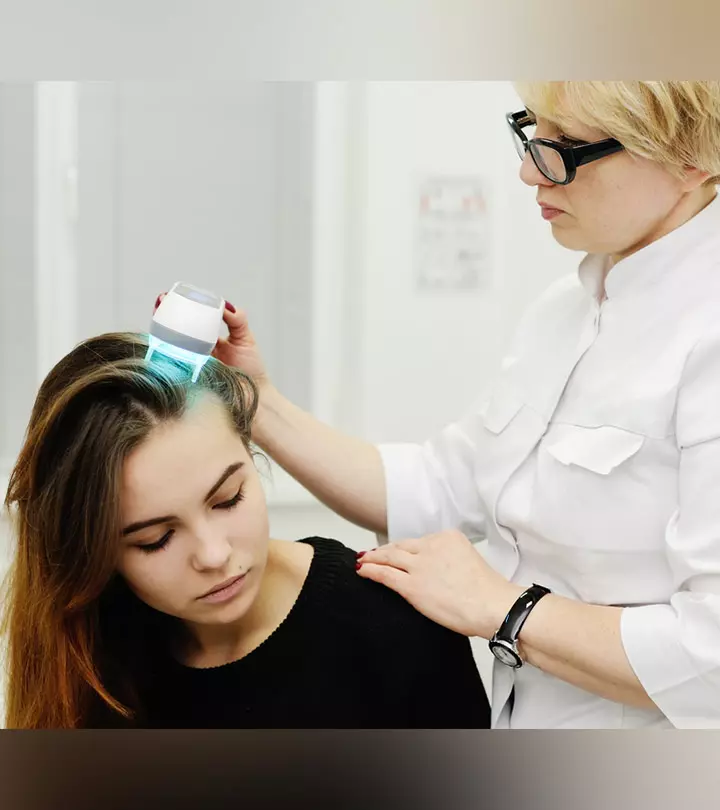
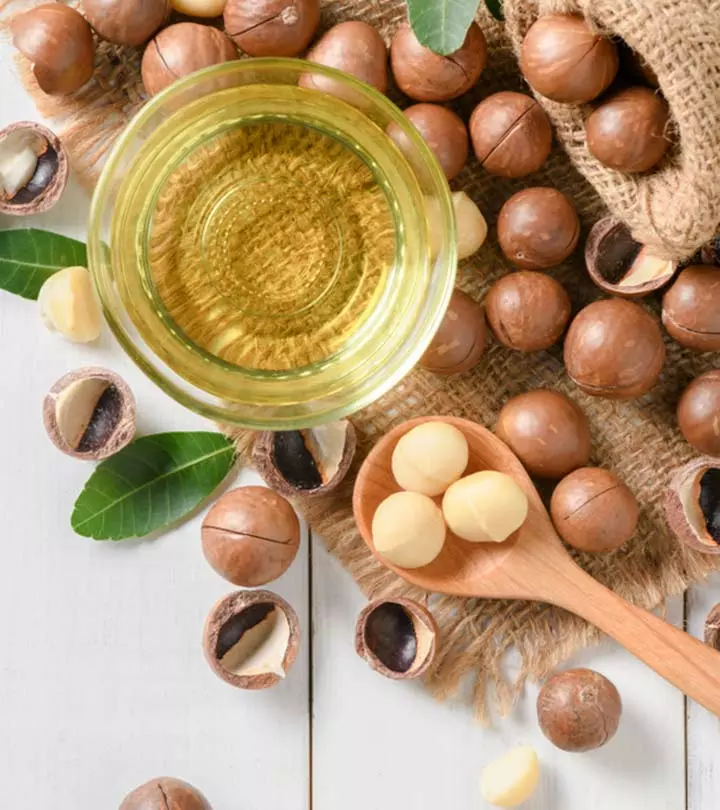
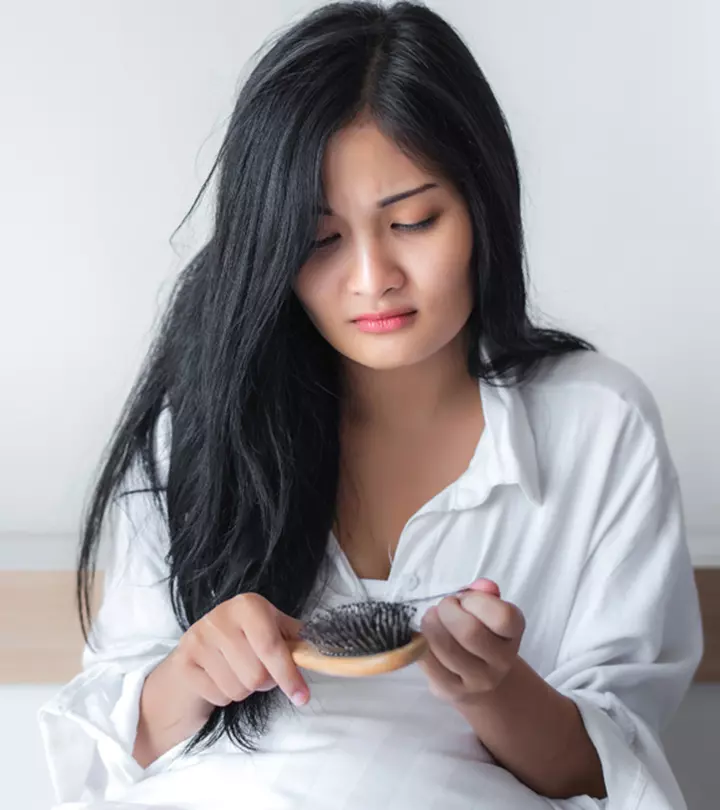
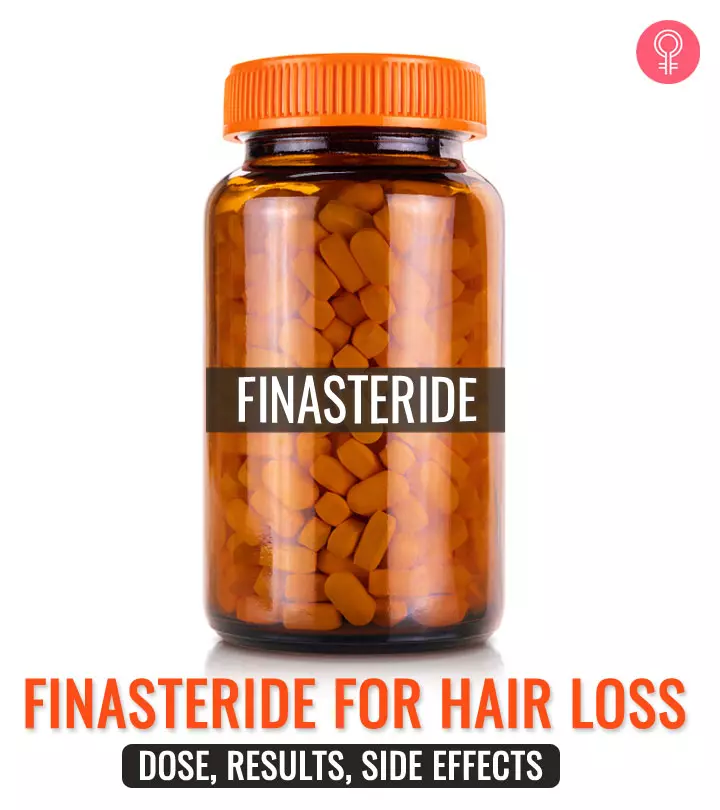

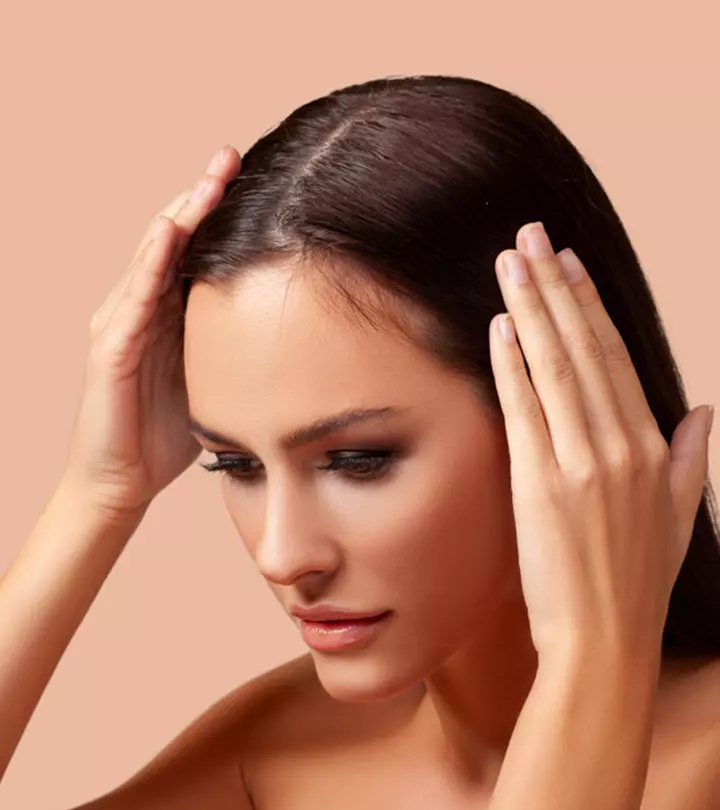
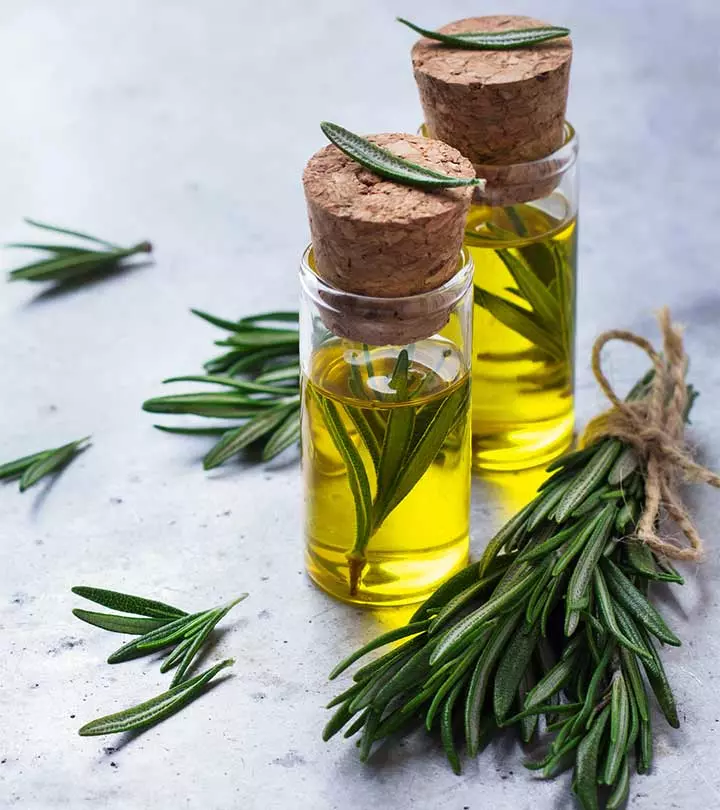
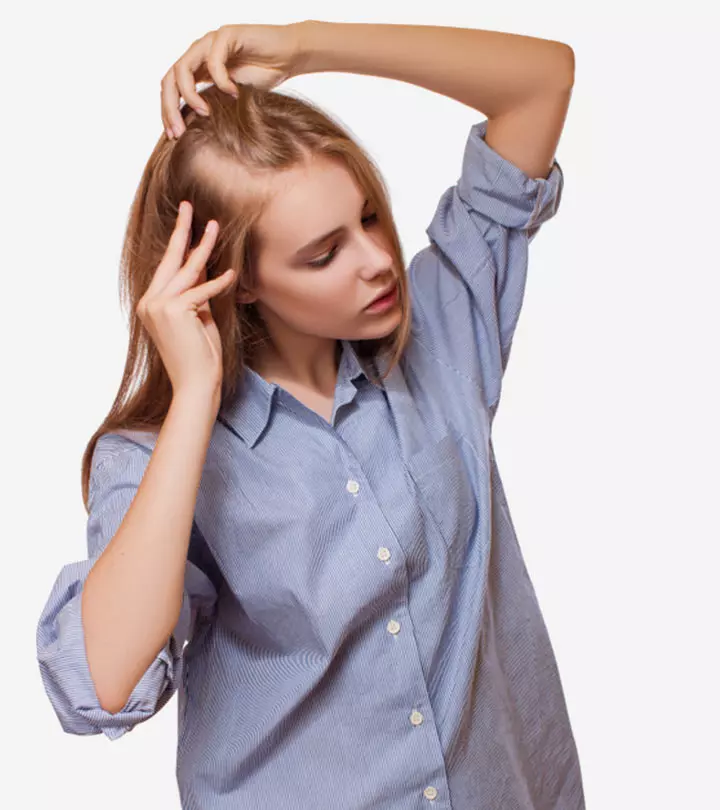
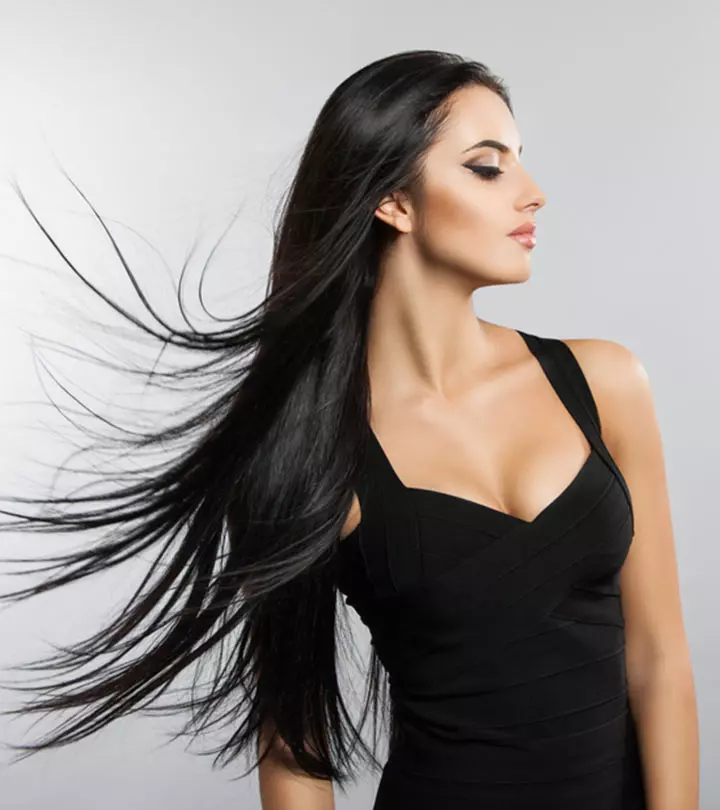
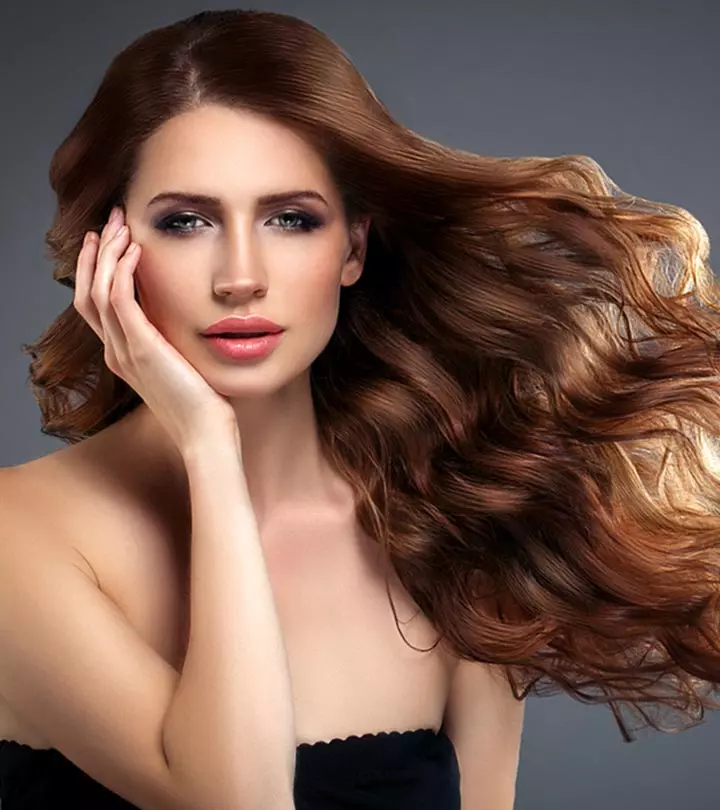
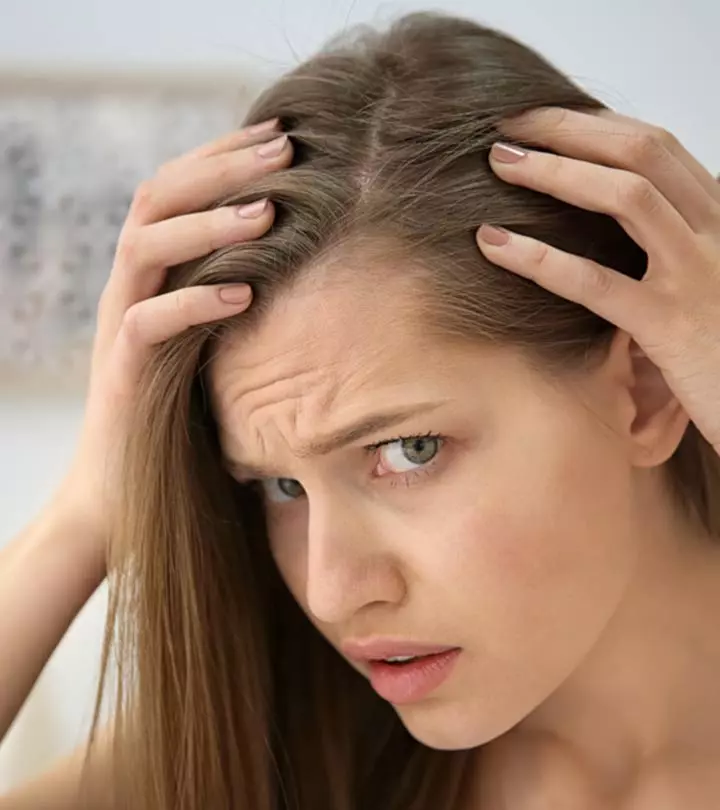

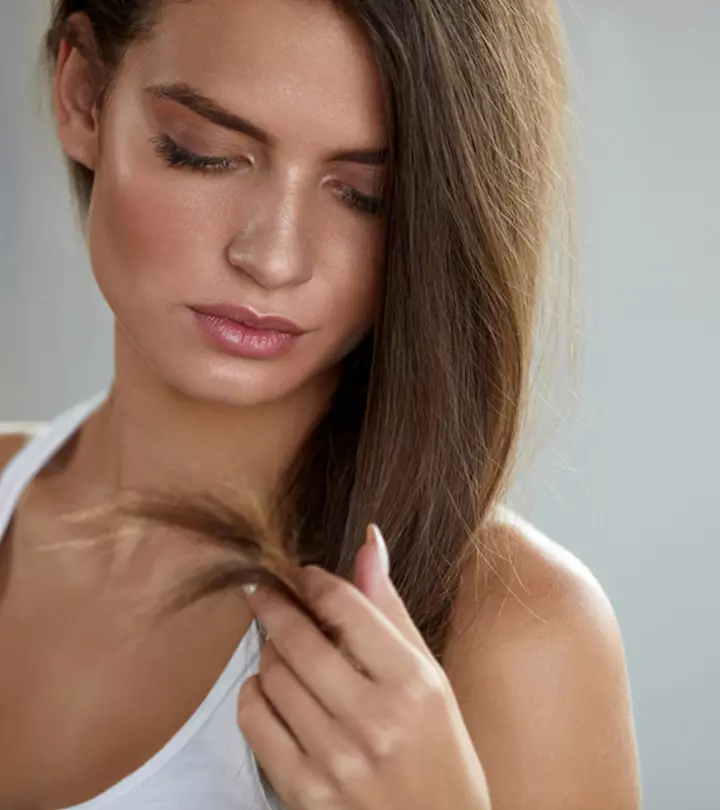
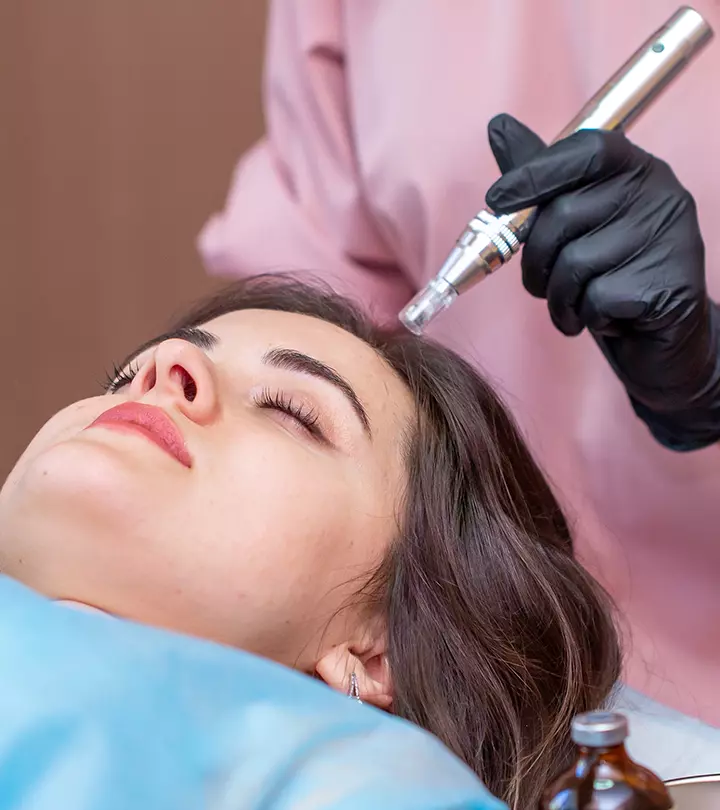
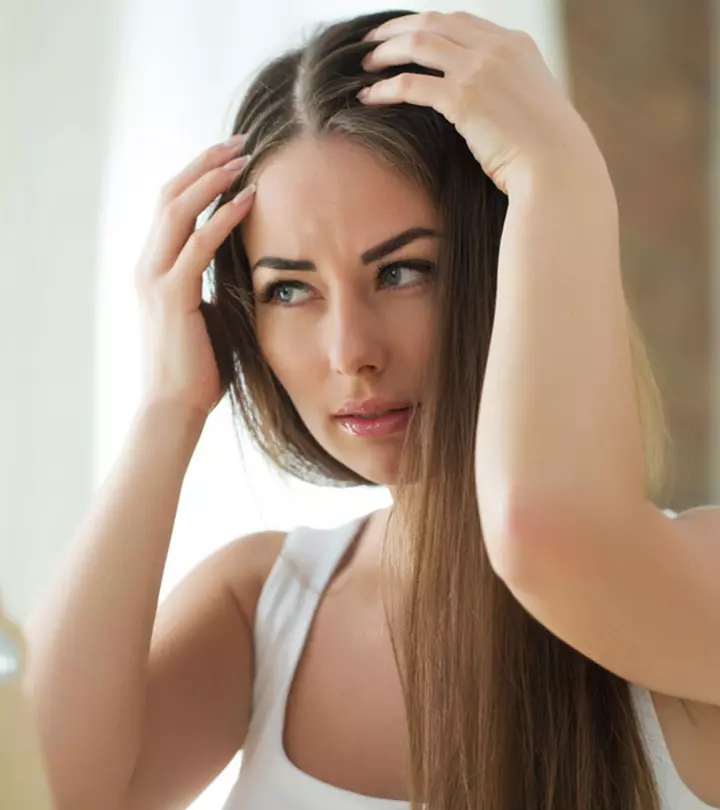
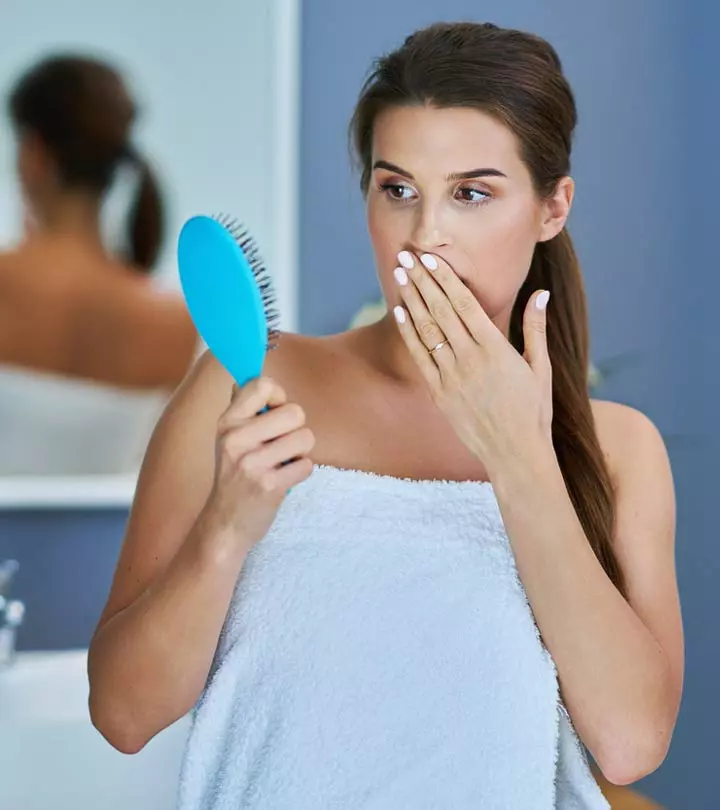
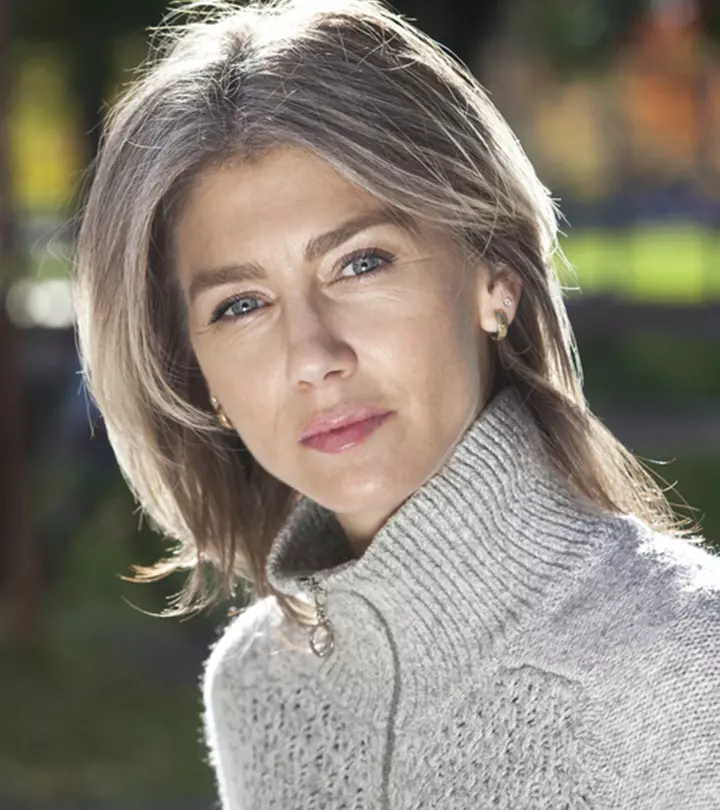
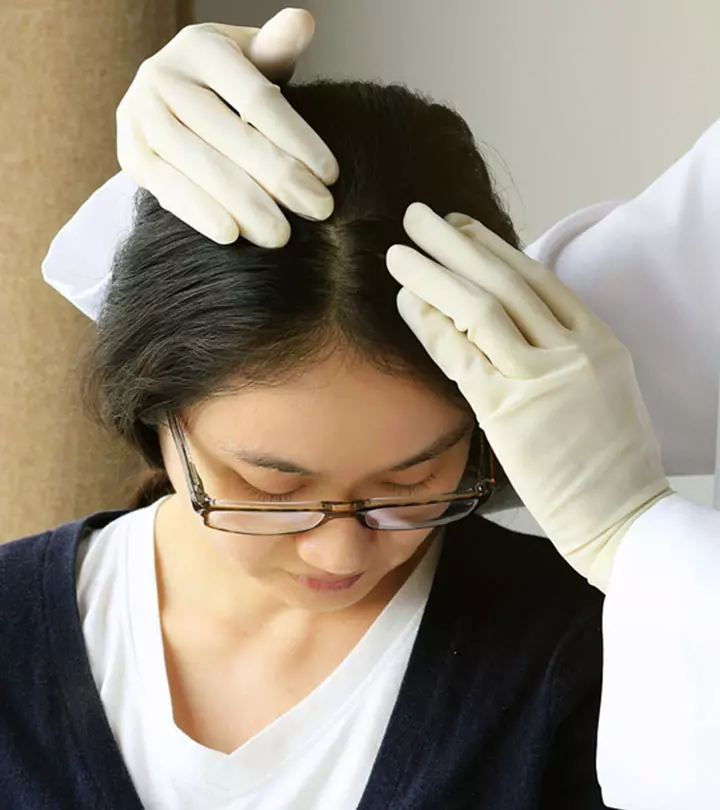
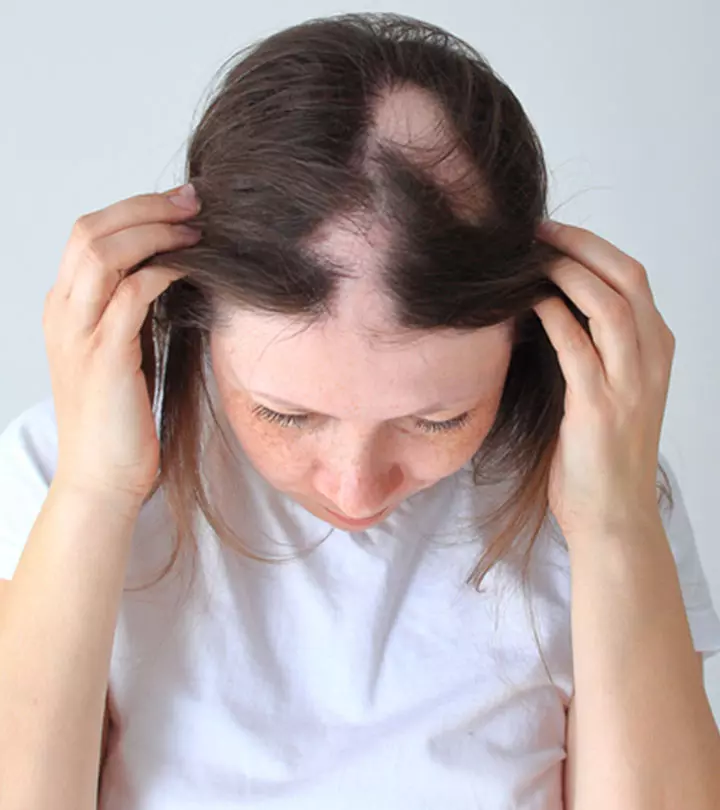
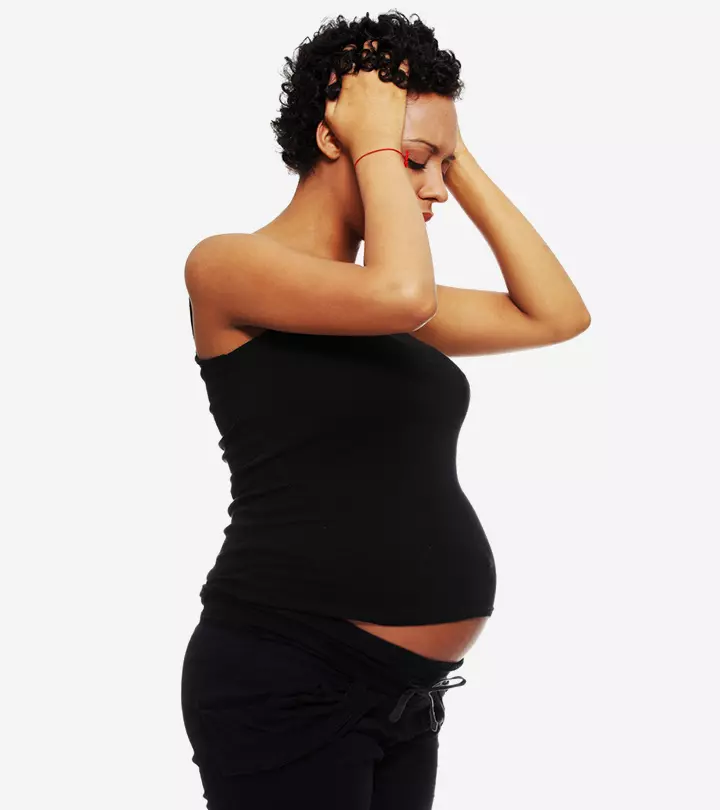
Community Experiences
Join the conversation and become a part of our empowering community! Share your stories, experiences, and insights to connect with other beauty, lifestyle, and health enthusiasts.